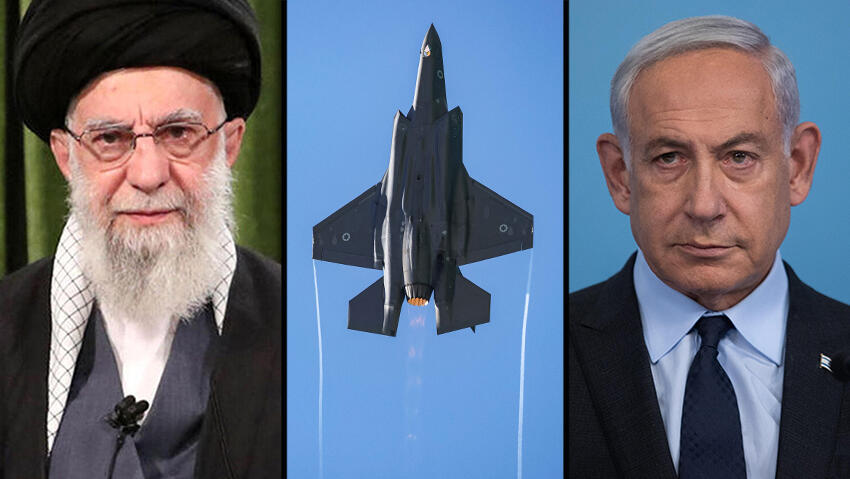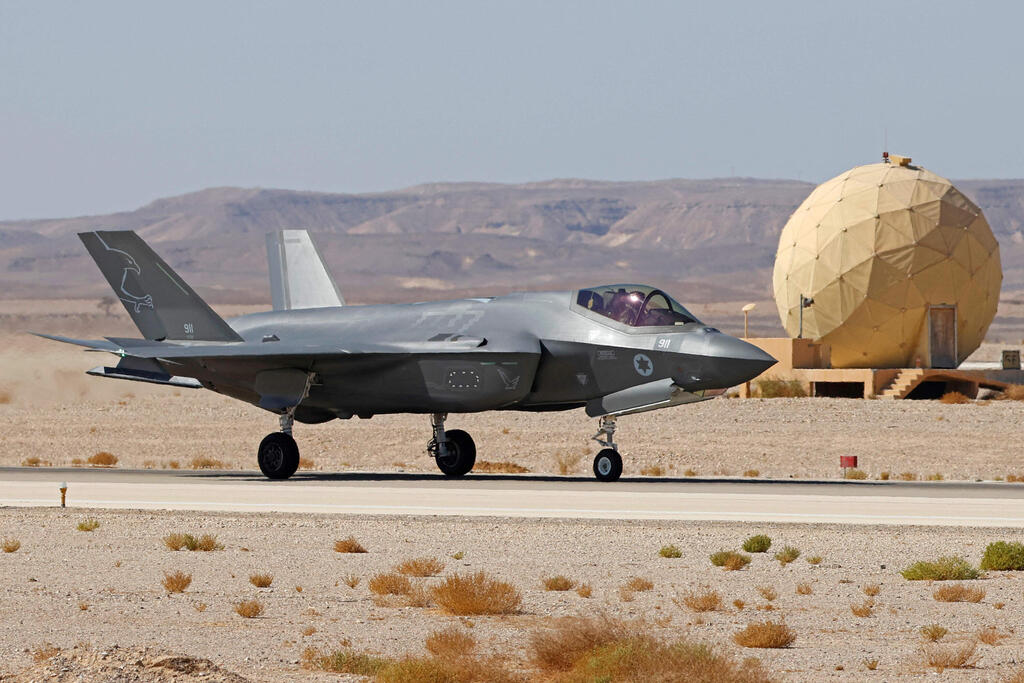Getting your Trinity Audio player ready...
An Israeli response to Iran’s unprecedented attack on its soil is not expected until after the Passover holiday next week, ABC News reported Thursday morning citing a senior U.S. official.
Israeli sources told ABC that Israel had prepared but canceled at least two planned retaliatory actions in the four days since Tehran sent over 350 munitions toward it.
3 View gallery


Iranian Supreme Leader Ayatollah Ali Khamenei and Prime Minister Benjamin Netanyahu
(Photo: AFP / HO / KHAMENEI.IR, JACK GUEZ / AFP, Alex Kolomoisky)
According to the report, most of Israel's leadership supports a direct response against Tehran and the options being considered include strikes on Iranian proxies rather than on Iranian territory itself, as well as potential cyberattacks.
However, some lawmakers are apprehensive about a strike on Israel. Shas Party Chairman Aryeh Deri, a close ally to Prime Minister Benjamin Netanyahu and an observer in the War Cabinet, advocates for a more restrained approach and argues against opening new fronts and escalating tensions.
"Our enemies are looking for this, and we should not be dragged into it," Deri stated in an interview with Shas's newsletter HaDerech.
Meanwhile, U.S. officials stopped short of telling Israel not to execute its counterstrike but suggested that such any action should be coordinated with Washington and kept under a certain threshold to prevent an all-out war. One senior U.S. official asserted that "there won’t be a war between Israel and Iran."
Other nations have also expressed their misgivings about a potential Israeli strike on Iran. German Foreign Minister Annalena Baerbock and British Foreign Secretary David Cameron, who visited Jerusalem this week, urged Israeli Foreign Minister Israel Katz to respond wisely, avoiding war.
Prior to the Iranian attack, the Israeli Air Force had reportedly completed last week a drill aimed at a distant target in collaboration with the Cypriot military. The exercise was designed to simulate an attack on a target similar to Iran, conducted during a period of heightened readiness. Since Iran's missile and drone attack on Israel, which saw nearly all incoming threats intercepted, calls have intensified within Israel for a response on Iranian soil.
Israel has several options for responding, ranging from strikes on nuclear facilities and high-profile assassinations, to attacks on Iranian proxies or facilities in Syria.
British media have speculated on the possible means by which Israel might strike Iran, even though the answer seems almost clear, and have raised other, albeit far less likely, alternatives.
According to Sky News, Israel boasts the sixth largest fleet of F-35 stealth fighters in the world, with 39 aircraft in service capable of reaching Iran, which has threatened to attack any nation that collaborates with Israel.
In addition, Israel could potentially use ground-to-ground missiles, as per foreign reports. The Israeli defense establishment has never officially confirmed the use of such missiles, but foreign sources over the years have suggested that Israel possesses Jericho missiles across three generations.
The Center for Political and Strategic Studies, a Washington-based research institute, assessed that the latest version, Jericho 3, has been operational since 2011. This medium-range ballistic missile can reach distances between 3,000 to 4,000 miles.
The Jericho 3 missile, which measures between 49 to 51 feet in length and has a diameter of about 5 feet, is listed by Business Insider as one of the four longest-range ground-to-ground missiles globally, alongside the American Minuteman, the Russian Rubezh and the Chinese Dongfeng.
According to the institute's data, the missile weighs 29 tons at launch and can carry a payload of 1,000 to 1,300 kilograms. It also has the capability to deliver nuclear and chemical warheads using radar guidance.
Foreign reports indicate that the missile was first tested at Palmachim Airbase in January 2008 and underwent two additional tests in 2011, which were never officially confirmed. The center's website states that the Jericho 3 has a longer range than its predecessor, and its operational deployment in 2011 likely signifies that the Jericho 2 missiles were replaced.
Sky News reported that if Israel decides to launch a similar ballistic missile attack on Iran, the Islamic Republic might struggle to intercept it as Israel has done with its allies. According to the Financial Times, other options include submarine-launched attacks near Iran or deploying Israeli drones to Iran, even if not launched from Israeli soil.





